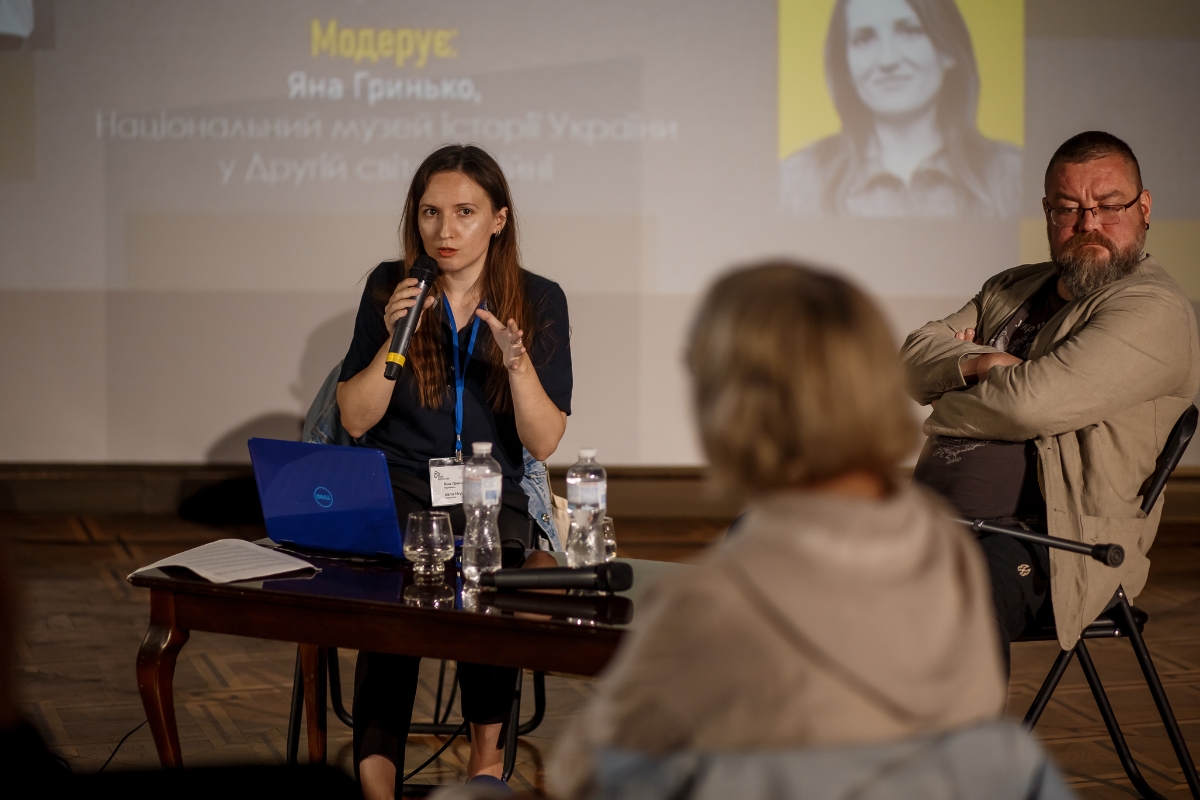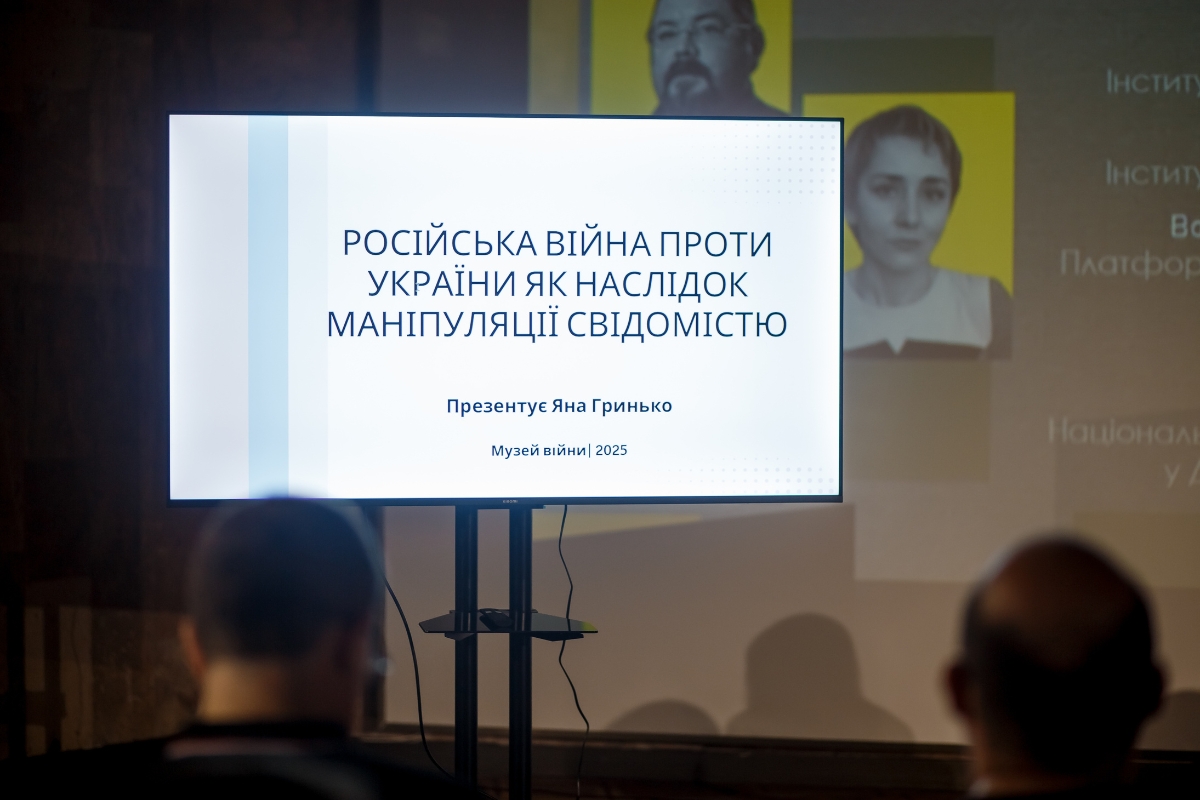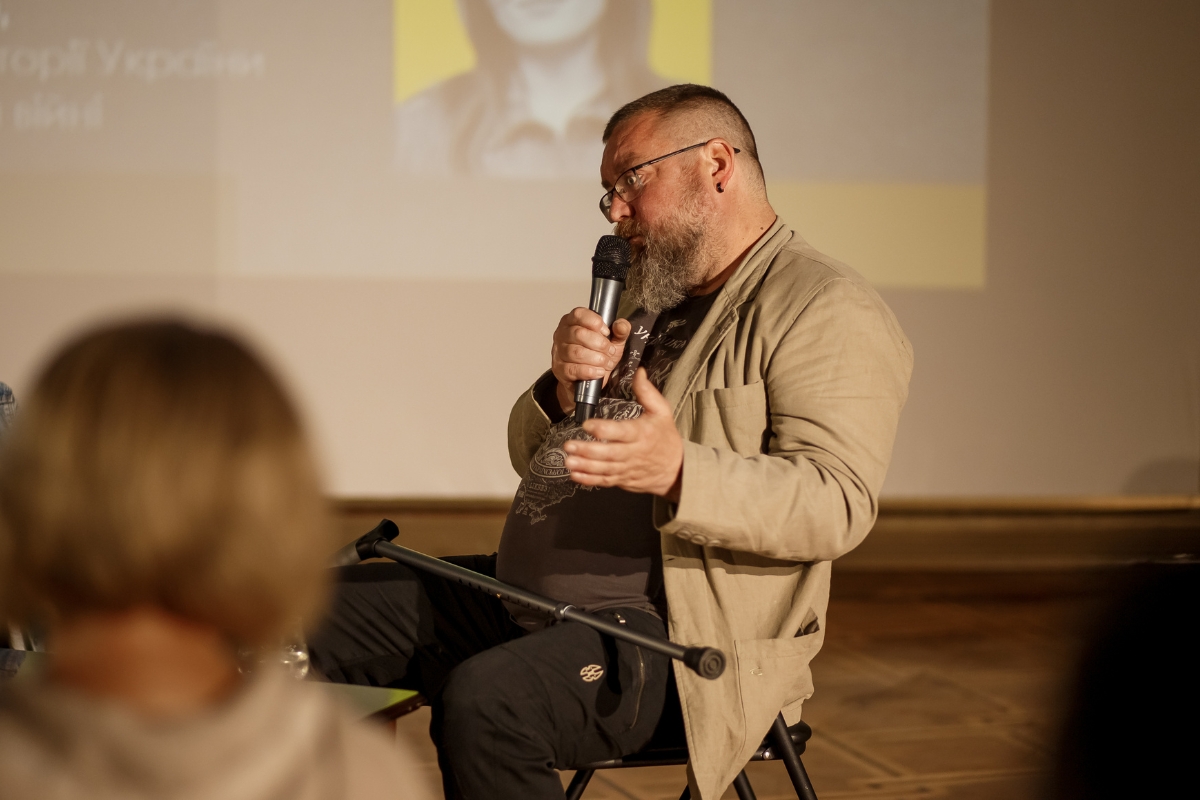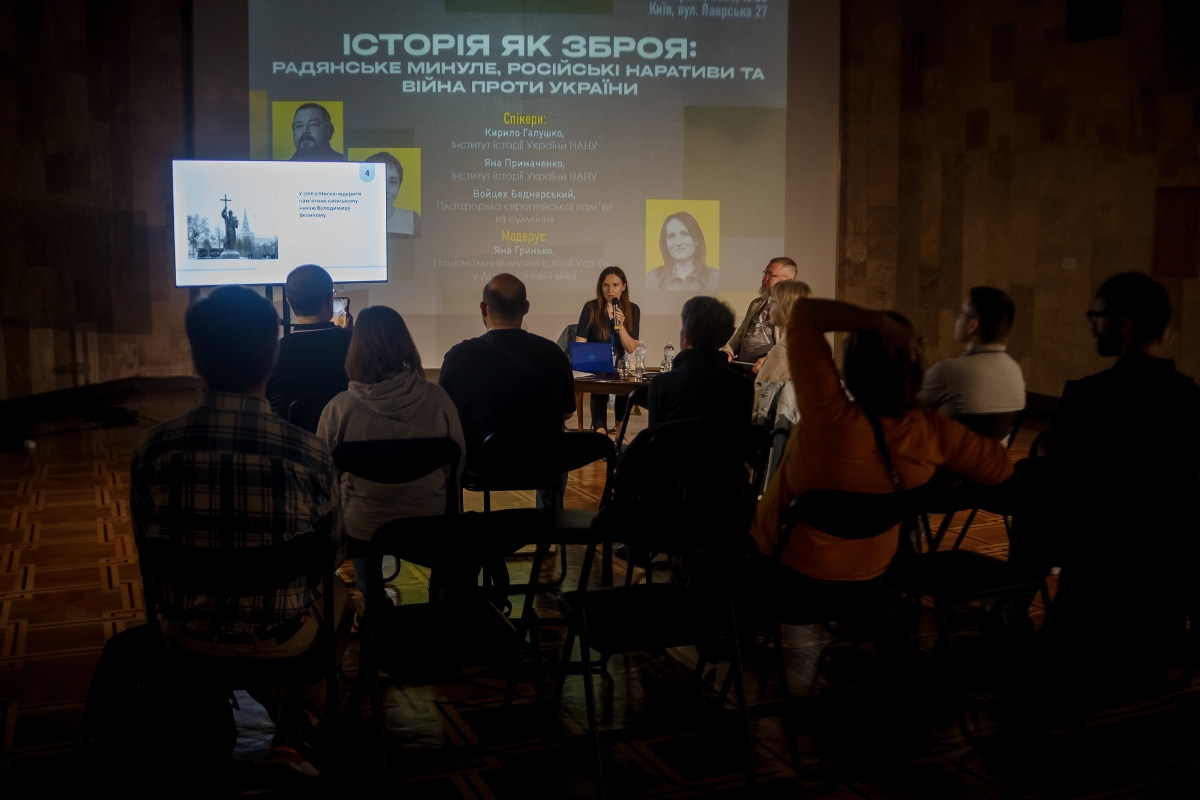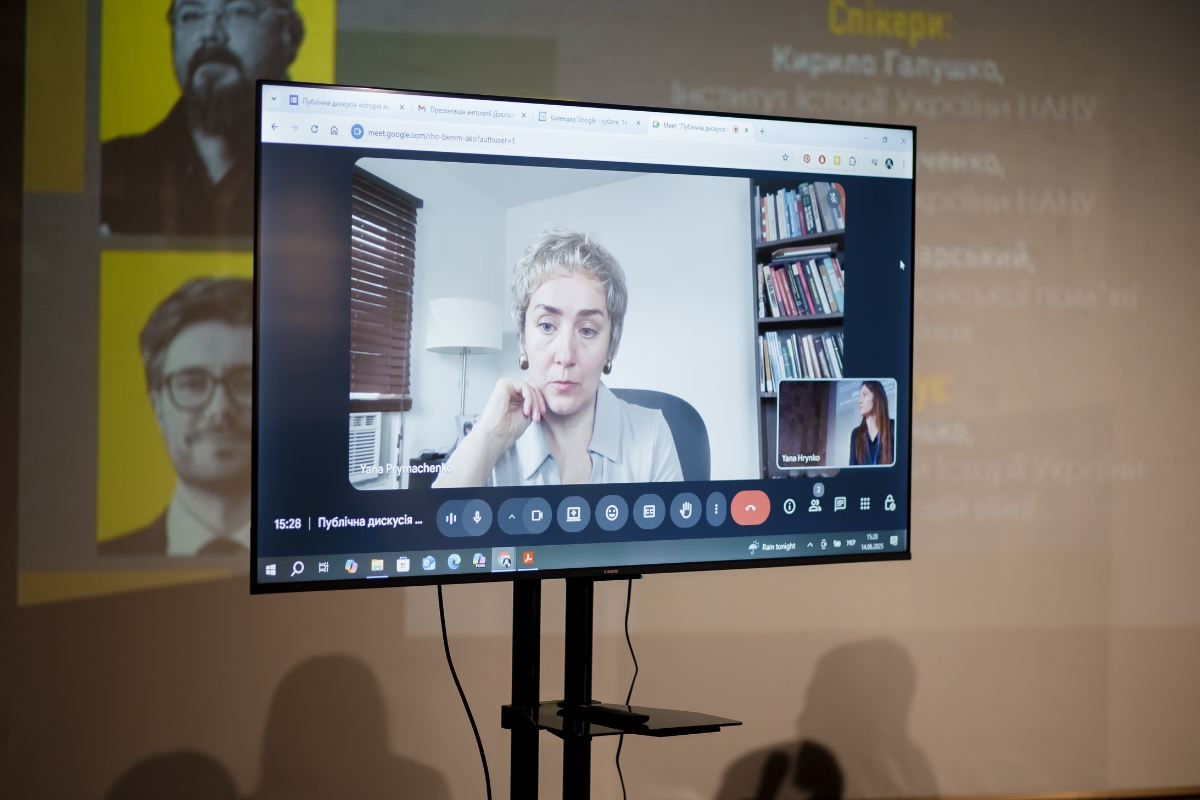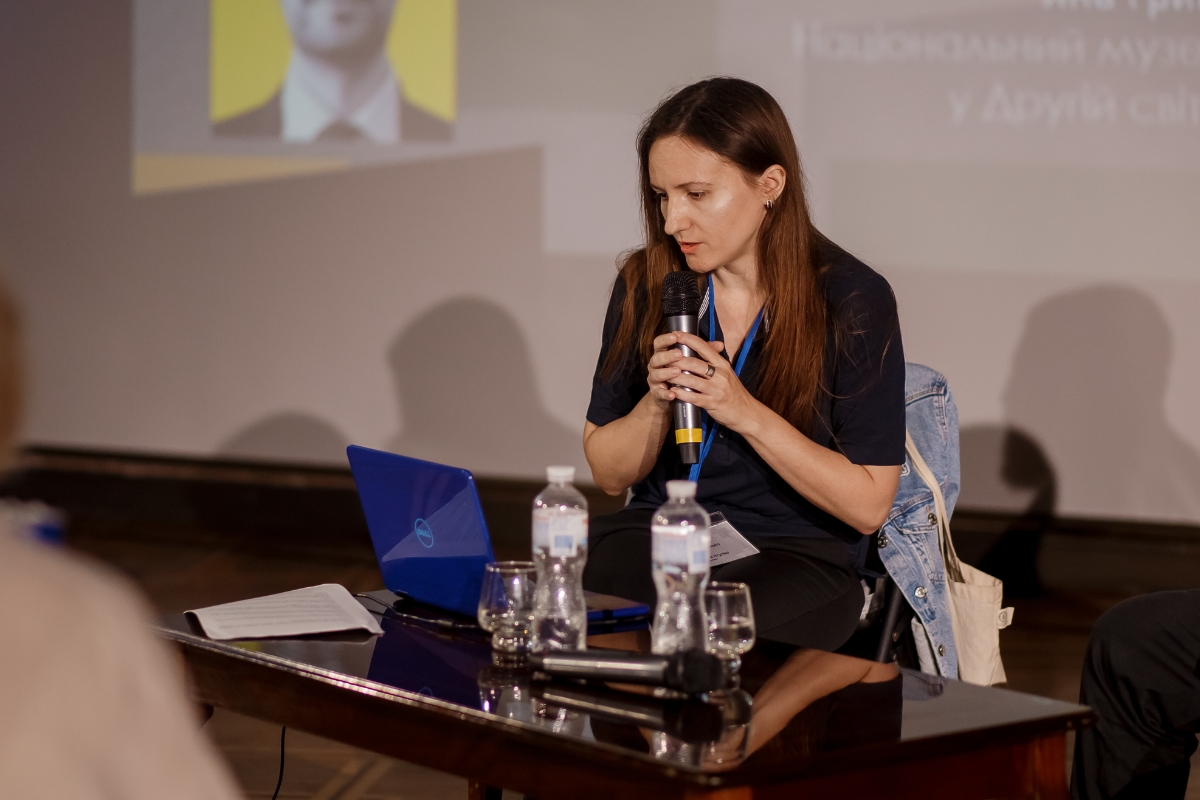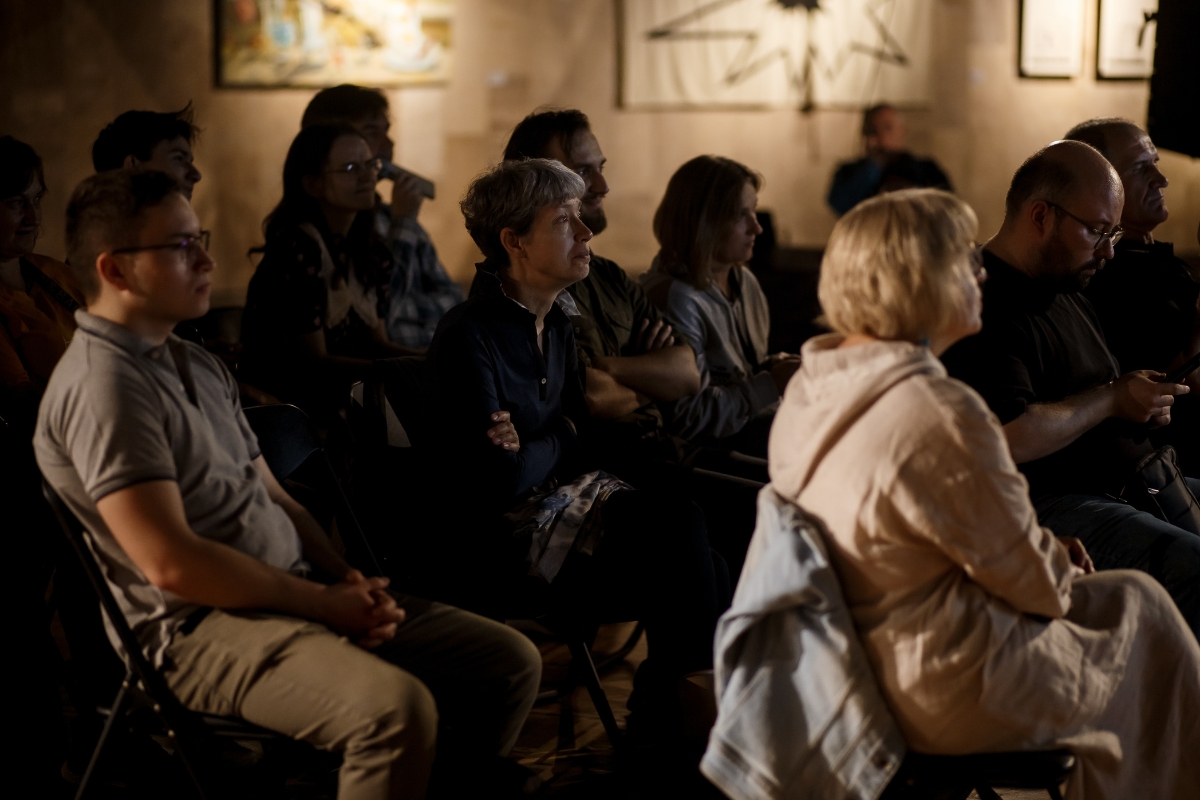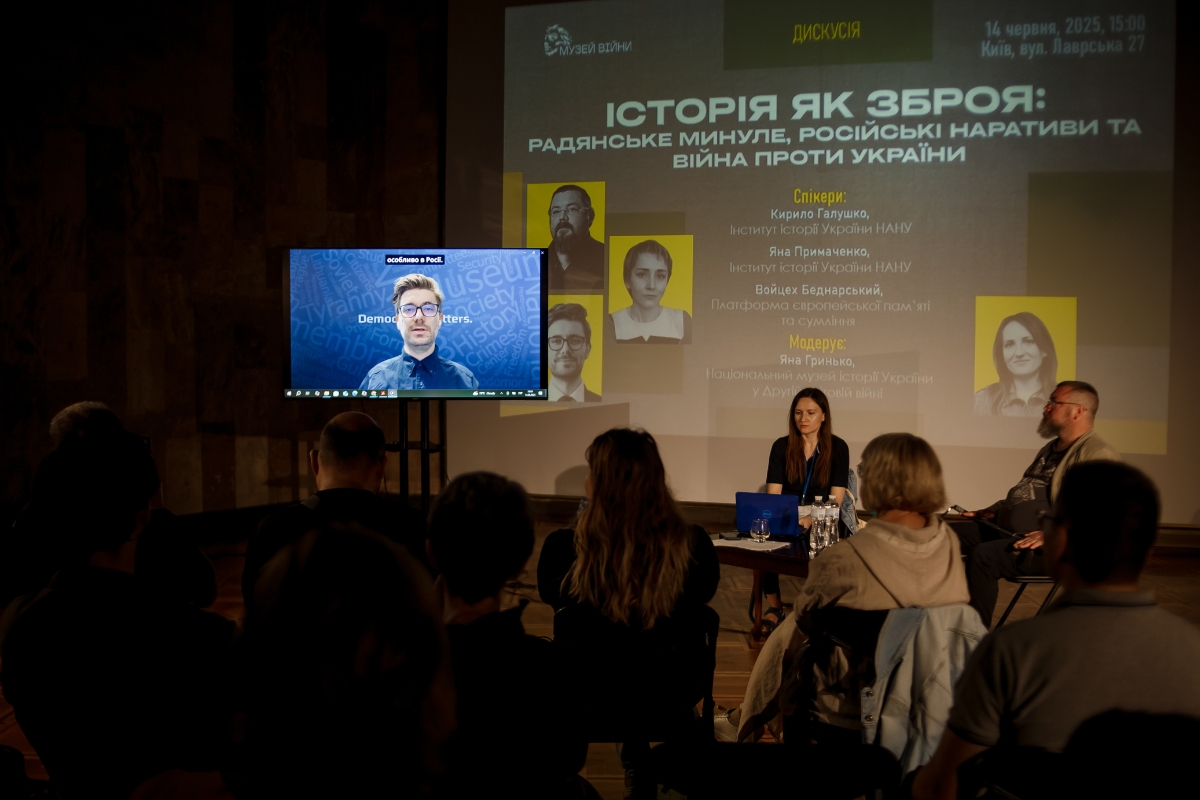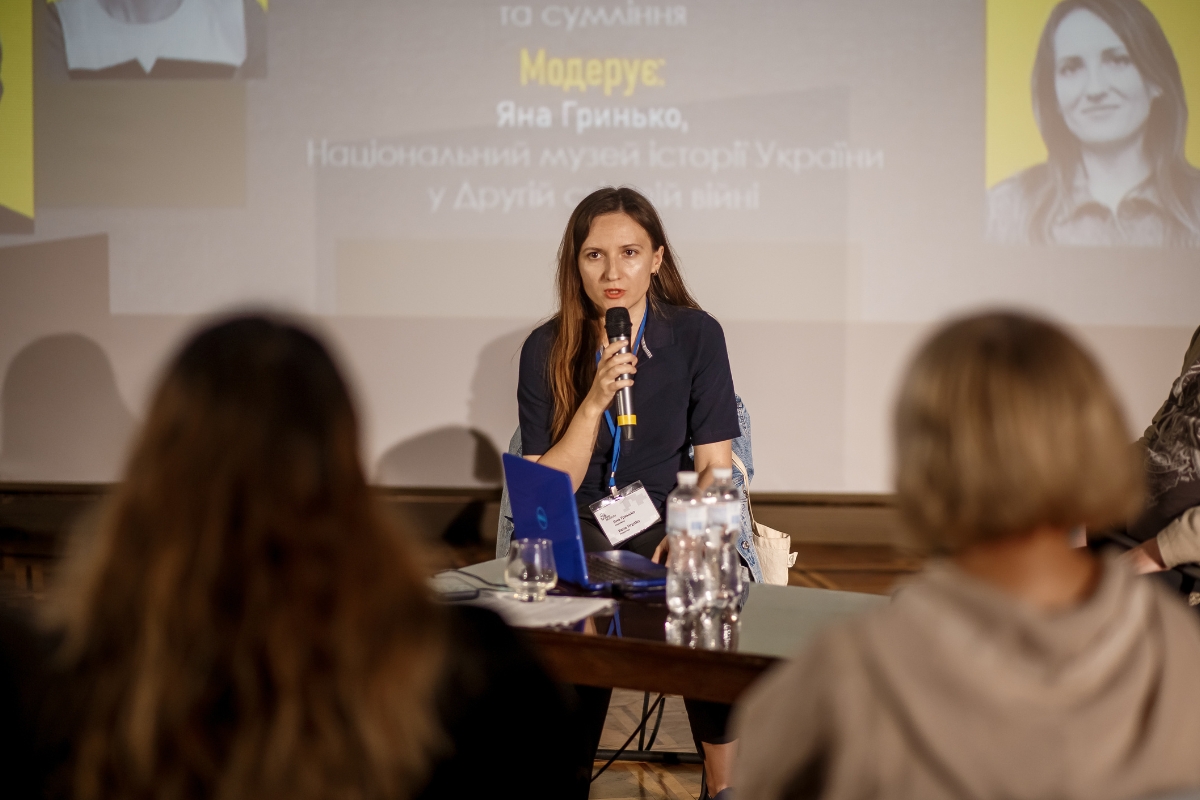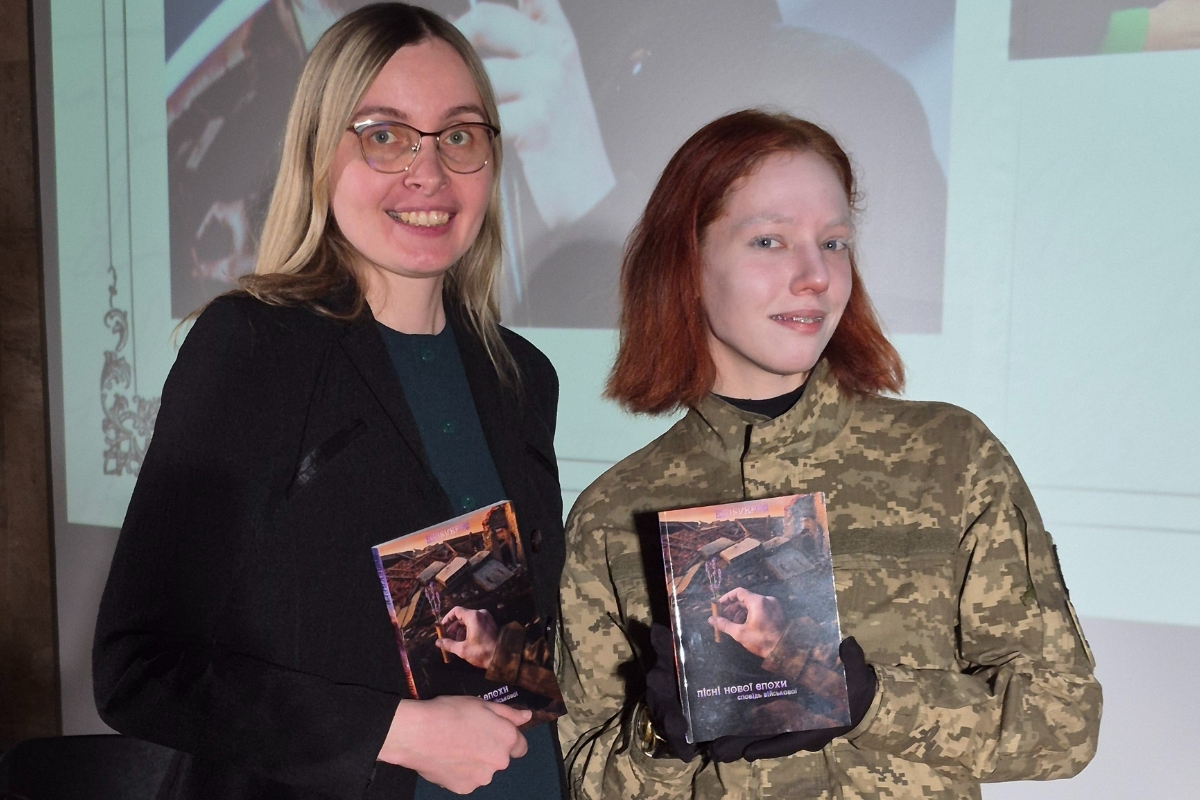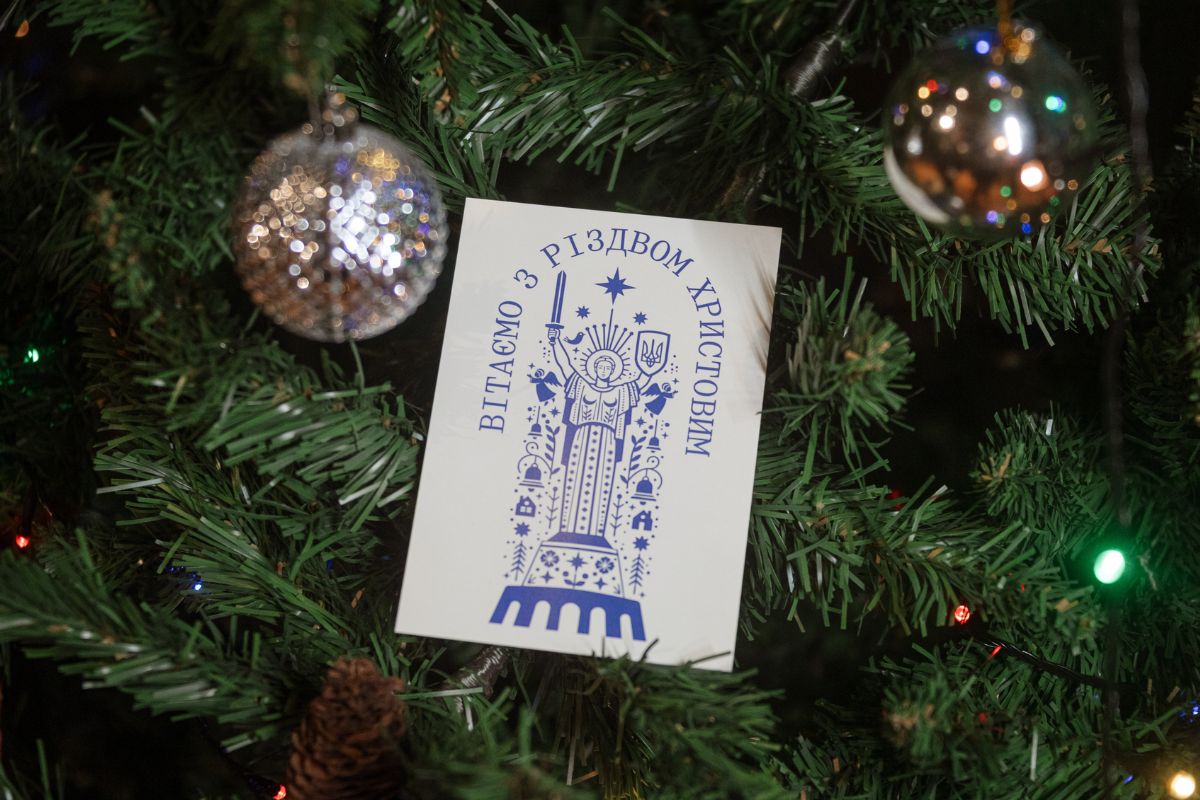On 14 June, the War Museum hosted a professional discussion ‘History as a weapon: the Soviet past, russian narratives and the war against Ukraine’.
The discussion was joined by the staff of the Institute of the History of Ukraine of the National Academy of Sciences of Ukraine – Kyrylo Halushko, a Candidate of Historical Sciences and Yana Prymachenko, a Candidate of Historical Sciences, Wojciech Bednarski, a representative of the Platform of European Memory and Conscience (PhD in History). The event was moderated by Yana Hrynko, senior researcher at the War Museum.
Based on their own research, the scholars spoke about russia’s transformation of historical memory into an arena of confrontation in the russian-Ukrainian war, and the use of manipulative practices to distort the history of the Second World War. They also identified the main trends in contemporary policy in Europe regarding the Soviet heritage in the context of russia’s aggresive war against Ukraine.
Yana Hrynko outlined the main russian propaganda narratives that the aggressor country promotes on various platforms, from social media to international cultural and political platforms. The most striking examples are attempts to undermine the legitimacy of Ukraine’s existence or our nation, or to brand Ukrainians as Nazis or their collaborators.
Kyrylo Halushko elaborated on the topic of russian methods of denying the existence of Ukraine. According to the historian, for decades, russia has been trying to implement the idea of historical continuity from the times of Kyivan Rus to the present and thus undermine the foundations of an independent Ukrainian state. Currently, monuments to Volodymyr the Great are being erected in various cities of the russian federation and moscow in particular, although the Kyivan prince had nothing to do with the creation of muscovy.
Yana Prymachenko stressed that russia uses the history of the Second World War as a means of militarising society and justifying aggression. For example, since putin came to power, the cult of Stalin as an effective ‘military commander, manager and leader’ has been restored. At the same time, the vilification of the Ukrainian liberation movement has become a tool to justify russian aggression against Ukraine.
Wojciech Bednarski spoke about how the failure to condemn the actions of the Soviet regime at the international level in a timely manner contributed to russian aggression against Ukraine. He noted that European society is currently unclear about the condemnation of communist crimes. A detailed analysis of a number of documents from international governing bodies and non-governmental organisations shows that the repressive policy of communism is criticised in resolutions, but this is not enough to disseminate this information among the general public and initiate international lawsuits against the criminal actions of the Soviet regime.
In the context of russia’s large-scale war against Ukraine, the policy of memory is a part of the struggle for the future of the Ukrainian nation and state, especially when the enemy uses history as a weapon. The War Museum sincerely thanks the speakers for their professional conversation and dissemination of knowledge about the information challenges of today.
